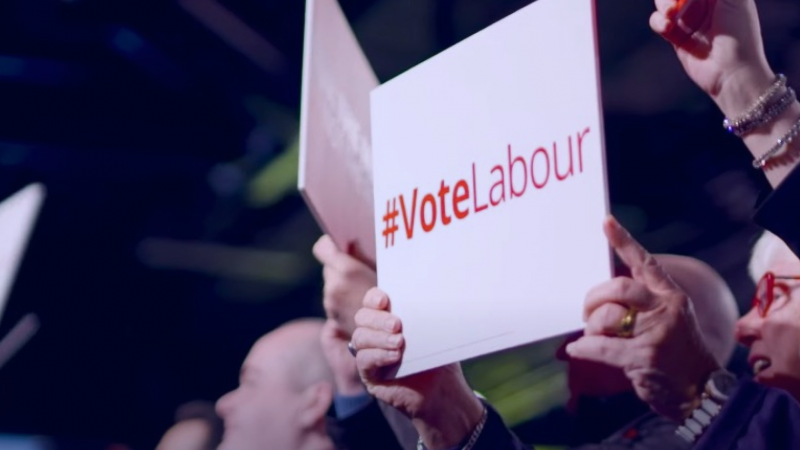
I was somewhat surprised to realise that Maurice Glasman, who founded Blue Labour in 2009 had not, in the 14 years since then, written his definitive Blue Labour book. There is a collection of essays, Blue Labour: Forging a New Politics, edited by Ian Geary and Adrian Pabst in 2015, and figures around the project have written books drawing on Blue Labour’s ideas (Rowenna Davies’s 2011 Tangled Up in Blue, Paul Embery’s 2020 effort with Despised: Why the Modern Left Loathes the Working Class, David Lammy’s 2021 work Tribes: A Search for Belonging in a Divided Society). Now, however, we get Glasman’s undiluted thesis in the form of Blue Labour: The Politics of the Common Good, out soon from Polity.
Blue Labour is something that divides opinions. Its proponents would argue it is an attempt to think about positive communitarianism in a Labour frame. They see it as a project that rejects globalisation and the wholesale embrace of the market in favour of a politics that is relational – seeing people, their relationships and traditions as something to be valued, wholly apart from their monetary value. Blue Labour’s critics would suggest it is a long way round to say you don’t like migrants, and that it operates with an outdated and fundamentally reactionary view of what constitutes the working class in 21st century Britain.
I am not unsympathetic to the fundamental aims of Blue Labour. I generally agree with the political diagnoses of post liberal figures, if seldom their solutions – even if my view of what actually existing Blue Labour constitutes is a little closer to the ‘just-don’t-like-them’ outlook outlined above. Nonetheless, a serious attempt at theorising a socialist politics that is about relationships and that acknowledges the importance of the sacred and the numinous in human life is something I would very much welcome.
In short, I was open to being convinced by Glasman’s book and the relevance of his professed political ideas. Unfortunately, the book is a mess that is unlikely to convince anyone of anything that isn’t the importance of good syntax.
At a very basic level, it is simply not readable. Run on sentences abound and it is full of classical and theoretical reference points that are explained poorly or not at all. I’m not sure you should have to know about The Owl of Minerva or the Putney debates to read a book nominally about the contemporary Labour Party, and perpetual references to Aristotle would sit better in a book that doesn’t take an at best ambivalent view of the expansion of university education. I am not interested in criticising a book for being too intellectual or highbrow and engaging with these reference points; I am interested in criticising it for expressing its concepts in a way that is difficult to comprehend and at base often quite incoherent. Glasman’s view of the Labour tradition seems to bear an aspiration relationship to reality; I remain unconvinced that “the Norman Yoke and the freeborn English” have as much to do with the Labour Party as Glasman seems to think they do.
When Glasman does suggest a concrete policy prescription – arguing capably for regional investment banks by discussing the history of Northern Rock, advocating for more apprenticeships, or expressing his support for a House of Lords that is vocational, with different professions putting forward representatives – they are often sensible, if limited. These moments of clarity are fairly rare, however, in this book that is part high political theory, part analysis of the Labour Party in the 21st century, and part extended rambling about Apollo, Mercury, and the 1536 parish map, all of it poorly structured and expressed.
Glasman is clearly aware of the difficulties of synthesising the positive communitarianism to which he aspires with a positive attitude to migration and a multicultural, multiracial society. He takes some commendable steps to separate himself from the more unsavoury attitudes that have come to be associated with Blue Labour: he includes a chapter on the difference between internationalism, which he supports (he feels the ability of democratic trade unions to function should be a condition of Britain’s trade deals) and globalisation, which he opposes. However, ultimately he does not quite overcome these difficulties.
The stated key theme of the book is a desire for politics not to view people as commodities and not to discuss them with market logics – to talk about the sanctity of family and of human life and not people’s economic value. This admirable principle is, however, not evenly applied when it comes to immigration. For all that Glasman is keen to assert that his view of the working class is a diverse one, composed of people from all over the world, he is assured in his opposition to free movement as something that disrupts local labour markets and drives down wages. Glasman, then, discusses migrants as mechanisms that impact labour markets and not as people with agency. This would seem to leave one set of people – migrants – out of the pledge to reject commodification and market terms in the discussion of people.
In the 2010s, the ideas Glasman discusses were minorly in vogue; he became Baron Glasman in 2011 and, in 2013, the IPPR put on an event called “England, My England: A Festival of Englishness”. Despite its discussion of the pandemic and other later events, Glasman’s is a book that feels a decade out of date, fit to be launched at England, my England and making little sense in the cost of living crisis ridden, ‘Red wall’ discourse saturated Britain of 2022. Many of its intentions are clearly good, but ultimately it will leave even sympathetic readers bored, occasionally baffled and ultimately unenlightened.




More from LabourList
‘Labour’s quiet quest for democratic renewal’
‘Labour promised to make work pay. Now it must deliver for young people’
‘Council Tax shouldn’t punish those who have the least or those we owe the most’